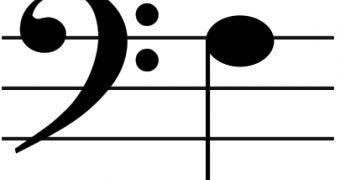Since the dawn of civilization, music has been an integrated part of a child's education, as everyone has realized the potential that sounds have in shaping the mind of a young pupil. In most countries in the world today, music lessons are still offered in schools as part of the basic curricula, along with sports and drawing. The Ancient Greeks recognized the importance of all these activities being performed alongside mathematics and physics, because they complemented each other.
Indeed, a new scientific study now comes to prove just that. Researchers at the Ohio State University in the US have reviewed the behavior of children, mostly in high-schools, who have been exposed to music lessons either early in life, or throughout their school years. Investigators Darby E. Southgate, MA, and Vincent Roscigno, PhD, both from OSU, have discovered that the presence of music in teens' education has a significant impact on their abilities to understand complicated concepts from math or physics.
The finds have been detailed in a recent edition of the journal Social Science Quarterly, where the scientists have drawn attention to the fact that academic achievement is directly correlated with the amount of music lessons or concerts children went to as youngsters, or even during middle-school. Reading performances have also showed major improvements, after the effect of music has been accounted for. For the test, the team used data from two major US studies on children, and cross-referenced them to their own research.
However, participating to music lessons or in various concerts is not always possible for every child, even though it is in their best interest. The survey has pointed out that parents with a poorer socioeconomic status cannot afford to send their offspring to attend music lessons, or various cultural manifestations, as opposed to the rich, who can even pay for a private music tutor for their kids.
In addition to the financial status, ethnicity has also been found to play a major factor, as far as attendance to music classes goes. For example, statistics show that White and Asian children are more likely to participate in music lessons than, say, Hispanics. This inequality is solely related to ethnicity, and has nothing to do with the socioeconomic status of their families. As far as Blacks go, the team says that, even though youngsters go to concerts regularly, they are highly unlikely to engage in formal music lessons alongside other ethnicities.

 14 DAY TRIAL //
14 DAY TRIAL //